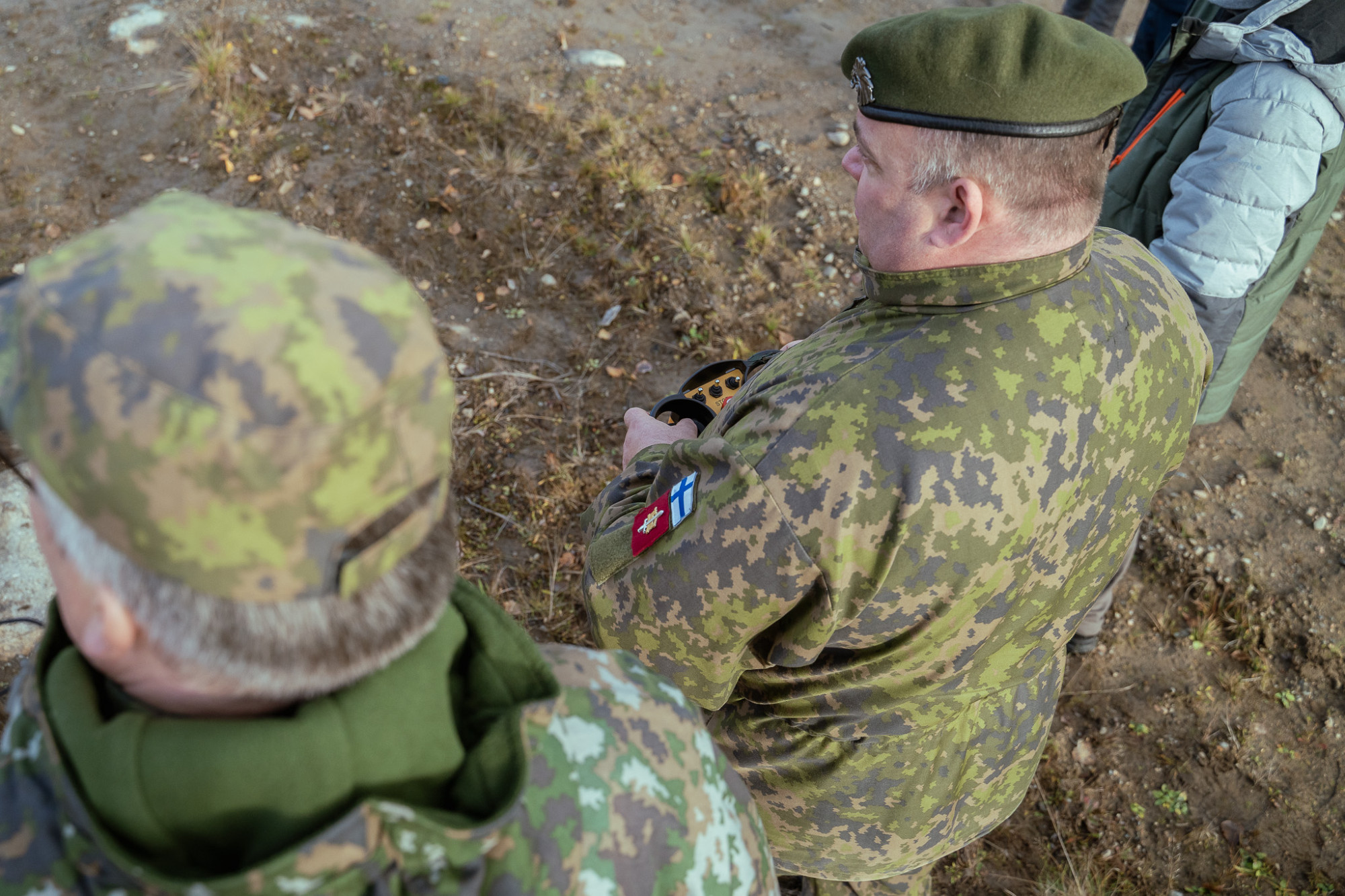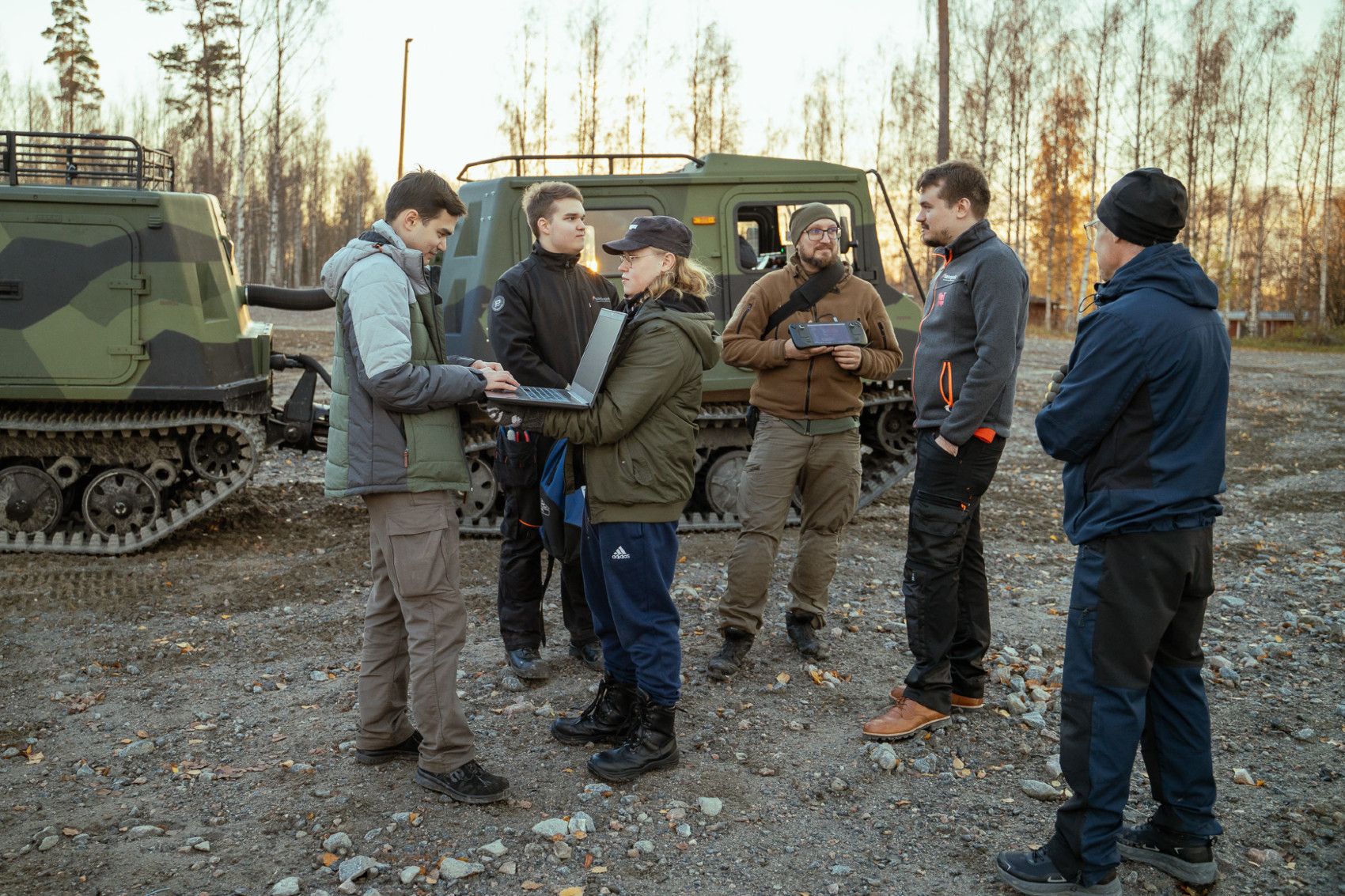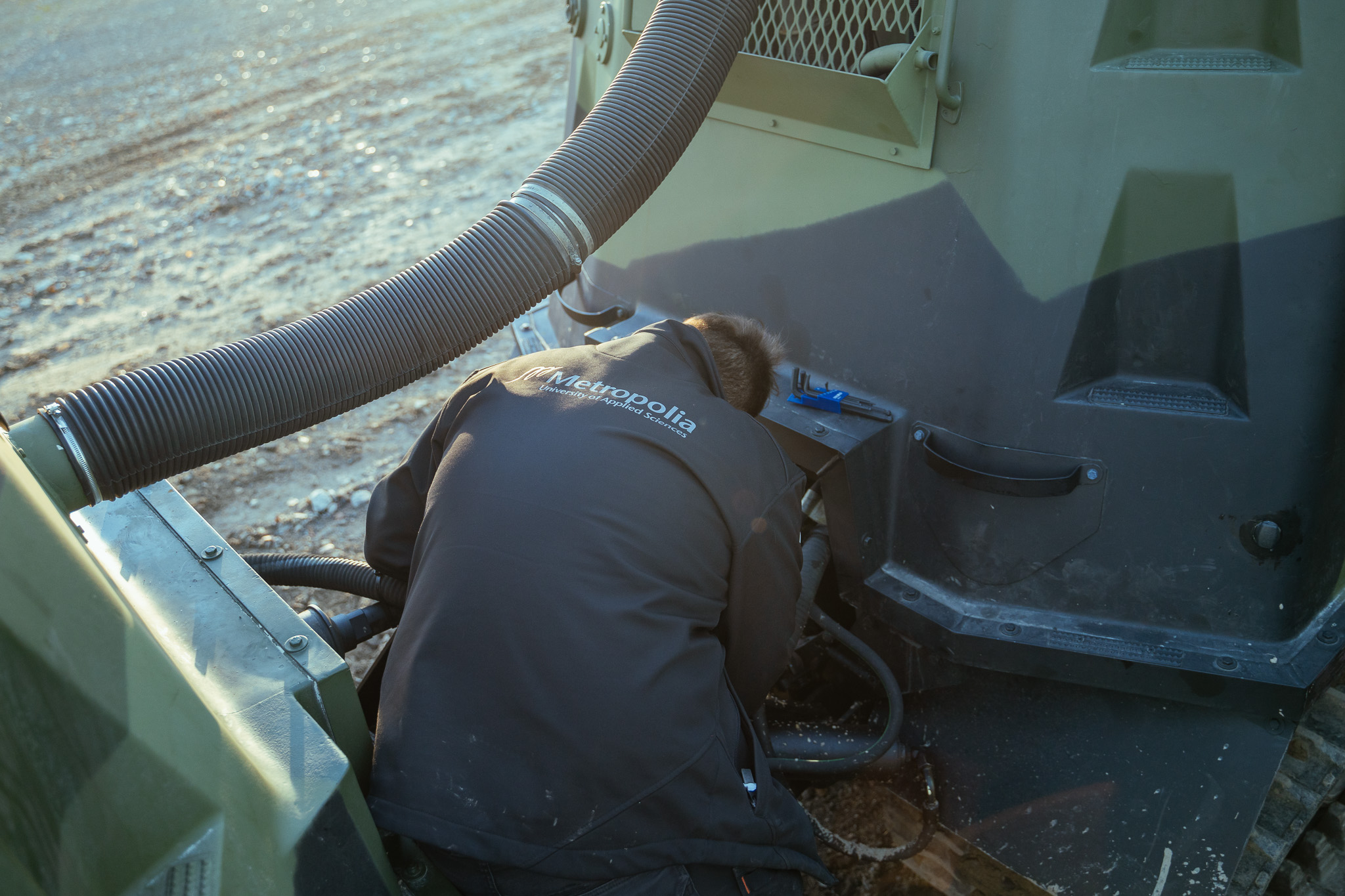Metropolia University of Applied Sciences’ Clean and Sustainable Solutions Innovation Hub received the KOTKA project as a commission at the beginning of 2024, as part of a longer-term collaboration with the National Defence University. The project was executed by experts and students from six different degree programs within the hub, specializing in smart mobility and robotics. A significant number of stakeholders were also involved in the project.
The collaboration with the National Defence University began in the autumn of 2023 when the agreement between the universities was signed. This includes research, educational activities, and project cooperation. Furthermore, the aim is to enhance the quality and impact of the research at both institutions.
Read more about the cooperation between Metropolia and the National Defence University in Metropolia’s news.
Learn more about Metropolia’s Clean and Sustainable Solutions Innovation Hub on their website.
Learn more about the National Defence University on their website.
The Remote-Controlled KOTKA Developed from a Tracked Vehicle
The first university collaboration project selected was the Sisu NA-140BT tracked vehicle. The development work focused on transforming the vehicle into a remotely controlled version. This prototype strongly supports the National Defence University’s research on autonomous technology and was an excellent fit for Metropolia’s core activities at the Myyrmäki campus. The project was named KOTKA. The long-term goal is to develop a fully autonomous system for operation on battlefields under harsh terrain conditions.
The KOTKA platform is based on an old tracked vehicle that was decommissioned by the Finnish Defence Forces. The vehicle’s lifecycle was significantly extended by developing its technology. KOTKA became a prototype for a future autonomous Arctic terrain vehicle, incorporating several subsystem innovations related to sensor fusion, navigation, and obstacle avoidance.
The development of KOTKA laid the groundwork for operational capabilities in Arctic regions. Taking into account the effects of climate change at an early stage allows for preparation with high-performance and climate-appropriate equipment.
Ecological and Sustainable Solutions Require Multidisciplinary Expertise

The development of ecological and sustainable solutions requires expertise across multiple fields. Metropolia’s Hiilitalli has strengthened the lifecycle thinking approach and brought concepts closer to practical applications. Read more about Hiilitalli on its website.
KOTKA could potentially be used in the future for dangerous tasks, such as transporting materials or people on the battlefield. The vehicle could, for example, retrieve wounded soldiers from the battlefield, deliver ammunition, or serve as a target device during training exercises. The vehicle’s versatility could free up soldiers for other tasks on the battlefield. KOTKA was presented to stakeholders and the press on December 13, 2024, at the National Defence University event in Santahamina.
Concrete Development Work Began in February 2024
 The tracked vehicle arrived at the Myyrmäki campus in February 2024, marking the beginning of concrete planning. The project was led by Oscar Nissin, Antti Liljaniemi, and Patrik Asikainen, project managers from Metropolia’s Clean and Sustainable Solutions Innovation Hub, each representing different focal areas: Smart Mobility, Robo Garage (Robotics and Automation), and AIoT Garage (AI and Intelligence of Things).
The tracked vehicle arrived at the Myyrmäki campus in February 2024, marking the beginning of concrete planning. The project was led by Oscar Nissin, Antti Liljaniemi, and Patrik Asikainen, project managers from Metropolia’s Clean and Sustainable Solutions Innovation Hub, each representing different focal areas: Smart Mobility, Robo Garage (Robotics and Automation), and AIoT Garage (AI and Intelligence of Things).
The project required broad expertise. A concrete testing platform like KOTKA allows for an excellent fusion of traditional vehicle technology and automation expertise when transforming a vehicle into a remotely controllable system. As the level of autonomy increases, the understanding of algorithms and sensor technology becomes more critical, and the development of the user interface for remote control requires a whole new set of applied skills. All components are powered electrically, so expertise in electrical engineering played a key role in the functionality of the entire system.
Due to the large physical size of the tracked vehicle, large-scale test drives could not be arranged during the development phase. However, essential subsystem testing was carried out at the Myyrmäki campus. The vehicle's remote-control capabilities were successfully verified during a two-day test session at a military facility at the end of October 2024. Despite encountering some challenges, the issues were resolved promptly in field conditions.
Students Involved in Product Development

The multidisciplinary expertise of the KOTKA project was also emphasized in the involvement of students. As an educational organization, Metropolia offers students opportunities to participate in business and project assignments as part of their studies. Over 35 students were involved in the project, working on practical exercises as part of Metropolia’s joint innovation course, and two students contributed to the project as part of their thesis work.
Project Manager Sampo Kuikka has long been involved in vehicle and mechanical engineering, both in teaching and product development roles. He is familiar with product development projects related to vehicle technology. In these projects, students work alongside experienced teachers and experts to find solutions to the challenges they encounter. "Product development is about creating something new, so looking for model answers in the back of a textbook is futile," said Kuikka, reflecting on his experience with the KOTKA project.
Collaborative Platforms for Businesses
Metropolia’s innovation hubs—Robo Garage, AIoT Garage, UrbanFarmLab, and Hiilitalli—offer businesses the opportunity to conduct tests, experiments, and pilot projects. Practical research projects have long been a strength of the innovation hub, and this expertise will be further strengthened in the future through initiatives focused on smart mobility and safety-enhancing solutions.
Services for Companies
The Clean and Sustainable Solutions Innovation Hub has carried out hundreds of collaboration projects with businesses, developing commercial project concepts for companies. KOTKA demonstrates the hub’s ability to implement flexible project solutions for various business needs and prototype development. Understanding the application of emerging technologies is one of the hub’s strengths.
The robotics and AI workshops—Robo Garage and AIoT Garage—offered businesses services such as initial assessments and technology workshops, as well as three different levels of projects: The Suvituuli (resulting in a demo, PoC – Proof of Concept), the Salama Project (resulting in a prototype), and the Iso myrsky (large-scale implementation project). Learn more about the robotics and AI workshops and the services they offer on their website.
Pics by Niko Moisas ja Oscar Nissin
Contacts
Merja Rehn
Innovation Director, Clean and smart solutions innovation hub
+358 50 500 3890
Merja.Rehn [at] metropolia.fi (Merja[dot]Rehn[at]metropolia[dot]fi)
Oscar Nissin
Project Manager, Theme lead for Smart Mobility & Defence Technology Solutions
+358 40 674 8224
Oscar.Nissin [at] metropolia.fi (Oscar[dot]Nissin[at]metropolia[dot]fi)
Antti Liljaniemi
Senior Lecturer, Mechanical Engineering Team
+358 40 024 0756
Antti.Liljaniemi [at] metropolia.fi (Antti[dot]Liljaniemi[at]metropolia[dot]fi)
Sampo Kuikka
Project Manager
Sampo.Kuikka [at] metropolia.fi (Sampo[dot]Kuikka[at]metropolia[dot]fi)
Petteri Hemminki
National Defence University
petteri.hemminki [at] mil.fi (petteri[dot]hemminki[at]mil[dot]fi)